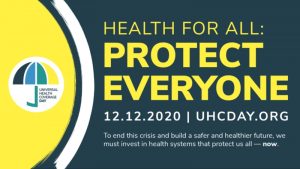People with disabilities are invisible unless you choose to see them.
Pallium India advocates for inclusion of people with disability in the ambit of palliative care to achieve universal health coverage
“Health for all: protect everyone” is the theme of this year’s Universal Health Coverage day, the 12th of December.

Releasing Pallium India’s white paper on “Rearticulating Care: Disability and Palliative Care in Low Middle Income Countries (LMICs)”, Ms Ashla Rani, trustee of Pallium India and Kerala Youth Icon 2017 said “I live with quadriplegia and use a wheelchair for mobility. I am lucky to be actually living in a healthcare institution. But most people with disability were in serious trouble during lockdown. Access to medicines and healthcare stopped, particularly for those with mobility issues. Income stopped; many were in partial starvation.”
As in any other humanitarian crisis, the COVID-19 pandemic results in “an increased number of people who experience disability owing to new injuries including birth injuries, lack of quality medical care, or the collapse of essential services.” Also, as with other crises, this time too we have forgotten our people with disability (who experience the issue of severe and chronic inaccessibility anyway) “in the contingency planning, assessment, design, and delivery of humanitarian relief” as various measures like lockdown were enforced.
Ms Smriti Rana, Pallium India’s Director-Programmes said, “’The Rights of Persons with Disabilities (RPWD) act’ came into being in 2016. Four years have passed. This act makes it mandatory to make all existing buildings accessible by 2021. It ensures access to information and education for everyone. Looking back, where do we stand now, in 2020?”
Dr M R Rajagopal, Chairman – Pallium India said, “People with disabilities in low and low-middle income countries (LICs and LMICs) live with serious health-related suffering. The 2014 declaration by the World Health Assembly asking all member states to integrate palliative care with all health care comes as an important reminder to us to not to ignore the invisible patients – people with disabilities.”
The white paper points out that people with disability have to be de facto beneficiaries of palliative care which is an essential element of their right to health. It makes a plea to global civil society, governments and non-government organizations to improve accessibility. It also calls for inclusion of disabilities in the domain of palliative care – an essential and defining part of Universal Health Coverage – so as to reduce their physical, social, economic, psychological and spiritual pain and suffering.






